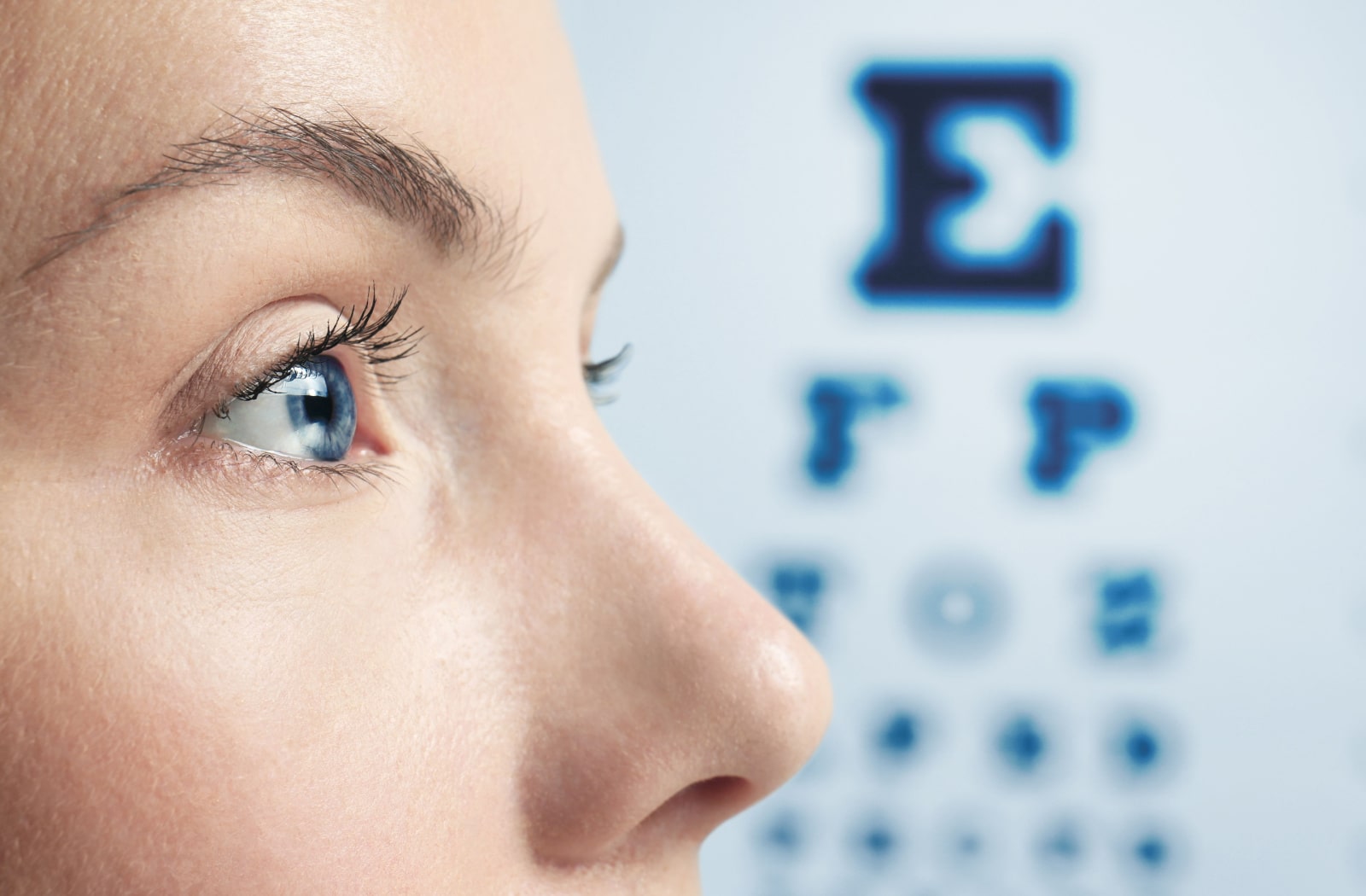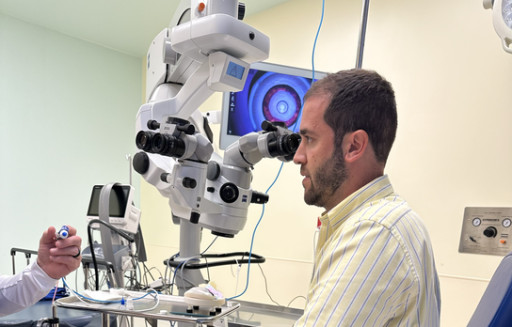All Categories
Featured
Opening Opportunities: Comprehensive Low Vision Rehabilitation Alternatives.
Coping with reduced vision can present unique difficulties, however modern-day rehabilitation methods empower individuals to thrive and adapt. From sophisticated innovation to hands-on training, there are countless alternatives created to improve life and foster independence. Right here's a comprehensive check out the varied rehabilitation solutions available for those with reduced vision.
The Duty of Low Vision Rehab
Reduced vision recovery concentrates on aiding people optimize their continuing to be vision and develop skills to manage their surroundings. With a combination of devices, training, and personalized support, recovery programs improve functionality and increase self-confidence in navigating day-to-day activities.
Key Reduced Vision Rehab Options
Custom-made Visual Aids
High-Powered Magnifiers: These devices come in portable, wearable, or electronic styles, enabling individuals to read, compose, or view items up close.
Telescopic Glasses: Perfect for improving distance vision, these glasses assist with activities such as viewing tv or reading signs.
![]()
Filter Lenses: Tinted lenses reduce glare, improve comparison, and provide UV defense, boosting comfort and presence.
Technical Advancements
Electronic Zoom Gadgets: Desktop and portable gadgets offer adjustable magnification, allowing easier access to published products and digital material.
![]()
Voice-Assisted Technology: Screen visitors, voice-enabled smart devices, and AI-driven applications aid customers navigate the digital globe extra effectively.
Wearable Vision Aids: Smart glasses equipped with video cameras and auditory responses supply real-time support with reading, recognizing items, and spatial orientation.
Professional Training Programs
Alignment and Flexibility Training: This program instructs individuals how to relocate confidently within their areas and homes, typically including walking canes or guide pets.
Daily Living Skills: Specialized training gears up individuals with strategies to execute necessary tasks such as cooking, clothing, and taking care of house jobs.
Flexible Aesthetic Techniques: Therapists overview patients on leveraging peripheral vision or scanning approaches to make up for vision loss.
Environmental Alterations
![]()
Straightforward modifications at home or job can substantially enhance access:
Using contrasting shades for far better object differentiation.
Including task lights to improve visibility.
Noting devices with responsive signs for easier procedure.
Emotional and Social Support
Dealing with vision loss usually involves psychological changes. Support teams and therapy solutions supply a safe area to build and share experiences durability.
Peer mentoring programs link individuals with similar obstacles, fostering sociability and shared remedies.
Accessing Rehabilitation Solutions
Reduced vision rehabilitation services are widely available via:
Specialized Clinics: Eye doctors and eye doctors learnt low vision care supply customized evaluations and options.
Not-for-profit Organizations: Groups like the American Foundation for the Blind and VisionAware offer sources, guidance, and recommendations.
Neighborhood Centers: Local services may offer inexpensive or free training and access to assistive devices.
Last Ideas
By discovering the countless rehab choices available, those with low vision can find approaches that work best for their unique demands and circumstances. If you or a loved one encounters vision obstacles, do not be reluctant to reach out to a low vision professional to begin the journey toward empowerment and adaptability.
Coping with reduced vision can present unique difficulties, however modern-day rehabilitation methods empower individuals to thrive and adapt. From sophisticated innovation to hands-on training, there are countless alternatives created to improve life and foster independence. Right here's a comprehensive check out the varied rehabilitation solutions available for those with reduced vision.
The Duty of Low Vision Rehab
Reduced vision recovery concentrates on aiding people optimize their continuing to be vision and develop skills to manage their surroundings. With a combination of devices, training, and personalized support, recovery programs improve functionality and increase self-confidence in navigating day-to-day activities.
Key Reduced Vision Rehab Options
Custom-made Visual Aids
High-Powered Magnifiers: These devices come in portable, wearable, or electronic styles, enabling individuals to read, compose, or view items up close.
Telescopic Glasses: Perfect for improving distance vision, these glasses assist with activities such as viewing tv or reading signs.

Filter Lenses: Tinted lenses reduce glare, improve comparison, and provide UV defense, boosting comfort and presence.
Technical Advancements
Electronic Zoom Gadgets: Desktop and portable gadgets offer adjustable magnification, allowing easier access to published products and digital material.

Voice-Assisted Technology: Screen visitors, voice-enabled smart devices, and AI-driven applications aid customers navigate the digital globe extra effectively.
Wearable Vision Aids: Smart glasses equipped with video cameras and auditory responses supply real-time support with reading, recognizing items, and spatial orientation.
Professional Training Programs
Alignment and Flexibility Training: This program instructs individuals how to relocate confidently within their areas and homes, typically including walking canes or guide pets.
Daily Living Skills: Specialized training gears up individuals with strategies to execute necessary tasks such as cooking, clothing, and taking care of house jobs.
Flexible Aesthetic Techniques: Therapists overview patients on leveraging peripheral vision or scanning approaches to make up for vision loss.
Environmental Alterations

Straightforward modifications at home or job can substantially enhance access:
Using contrasting shades for far better object differentiation.
Including task lights to improve visibility.
Noting devices with responsive signs for easier procedure.
Emotional and Social Support
Dealing with vision loss usually involves psychological changes. Support teams and therapy solutions supply a safe area to build and share experiences durability.
Peer mentoring programs link individuals with similar obstacles, fostering sociability and shared remedies.
Accessing Rehabilitation Solutions
Reduced vision rehabilitation services are widely available via:
Specialized Clinics: Eye doctors and eye doctors learnt low vision care supply customized evaluations and options.
Not-for-profit Organizations: Groups like the American Foundation for the Blind and VisionAware offer sources, guidance, and recommendations.
Neighborhood Centers: Local services may offer inexpensive or free training and access to assistive devices.
Last Ideas
By discovering the countless rehab choices available, those with low vision can find approaches that work best for their unique demands and circumstances. If you or a loved one encounters vision obstacles, do not be reluctant to reach out to a low vision professional to begin the journey toward empowerment and adaptability.
Latest Posts
Expert Flat Roofing Solutions - Weathercraft General Contracting Experts.
Published Feb 02, 25
1 min read
Reliable Flat Roofing Services - Weathercraft General Contracting Experts.
Published Feb 02, 25
1 min read
Tailored Vinyl Fencing Solutions - Reliable Fence Installation by Idaho Fence.
Published Feb 02, 25
1 min read
More
Latest Posts
Expert Flat Roofing Solutions - Weathercraft General Contracting Experts.
Published Feb 02, 25
1 min read
Reliable Flat Roofing Services - Weathercraft General Contracting Experts.
Published Feb 02, 25
1 min read
Tailored Vinyl Fencing Solutions - Reliable Fence Installation by Idaho Fence.
Published Feb 02, 25
1 min read